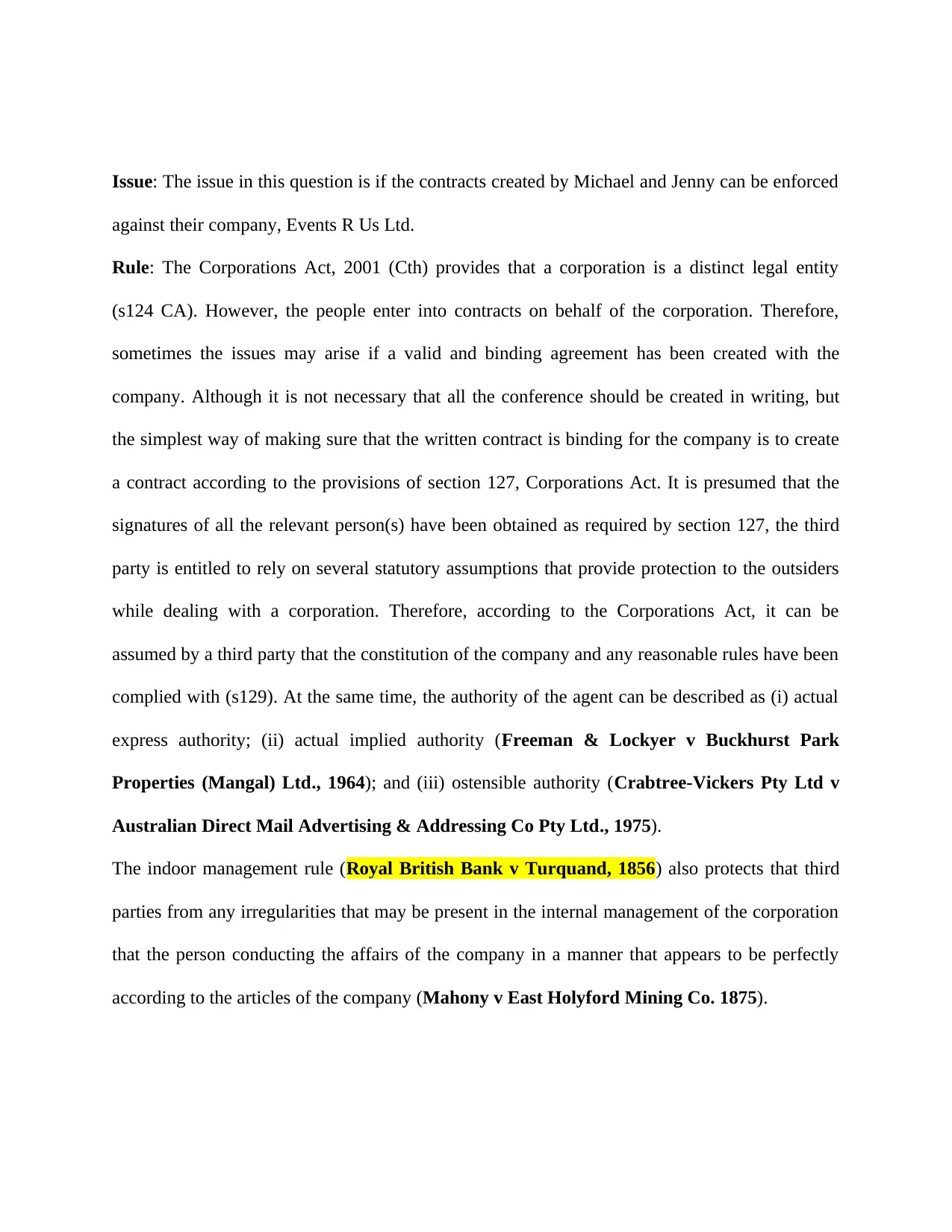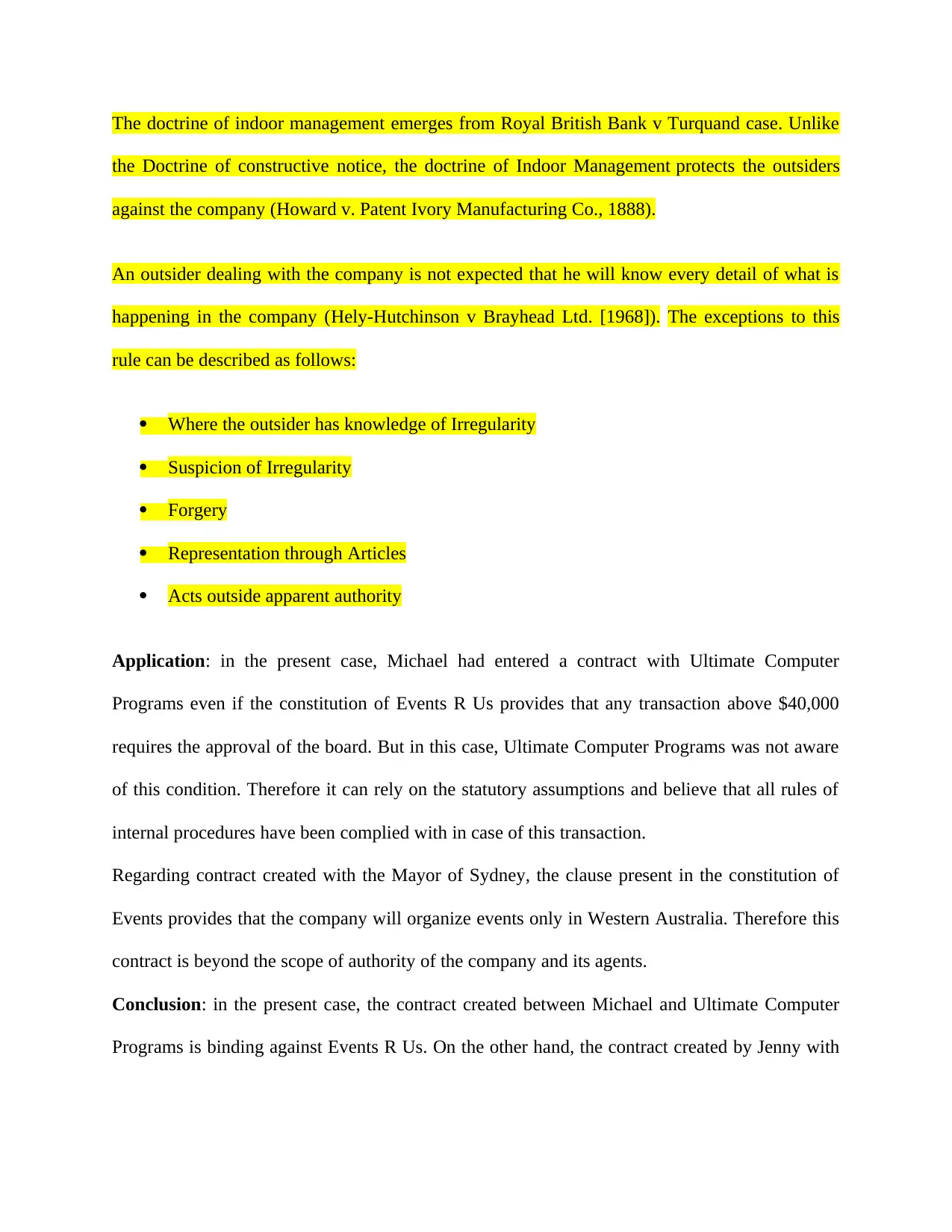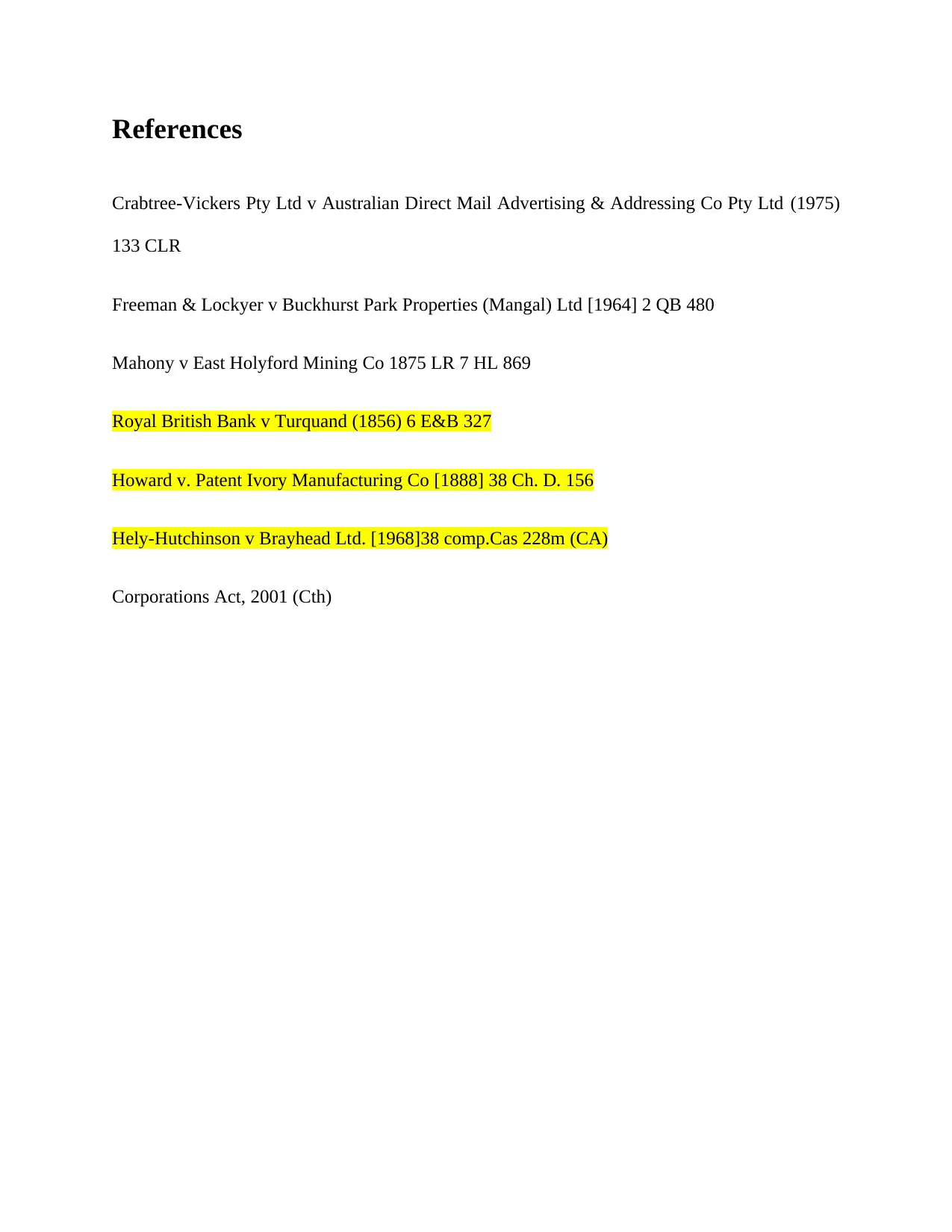Corporations Act, Contract Law, and IRAC Analysis: Business Scenarios
VerifiedAdded on 2023/03/30
|4
|626
|296
Homework Assignment
AI Summary
This assignment addresses a legal issue concerning the enforceability of contracts against a company (Events R Us Ltd.) under the Corporations Act, 2001 (Cth). It applies the IRAC method (Issue, Rule, Application, Conclusion) to analyze contracts created by Michael and Jenny. The analysis covers key aspects of corporate law, including the corporation as a distinct legal entity, the authority of agents, statutory assumptions, and the indoor management rule (Turquand's case). It concludes that the contract made by Michael with Ultimate Computer Programs is binding due to the third party's ability to rely on statutory assumptions, while the contract made by Jenny with the Mayor of Sydney is likely unenforceable as it exceeds the company's scope of authority. References to relevant case law and sections of the Corporations Act are included to support the analysis. Desklib provides this and other solved assignments to aid students in their studies.
1 out of 4











![[object Object]](/_next/static/media/star-bottom.7253800d.svg)